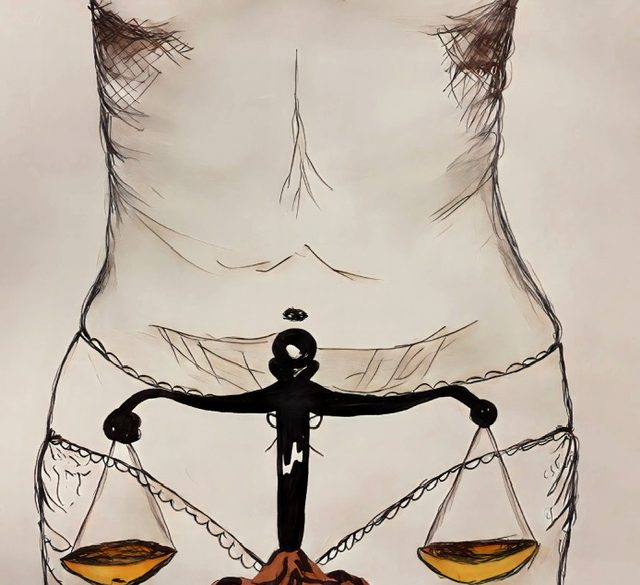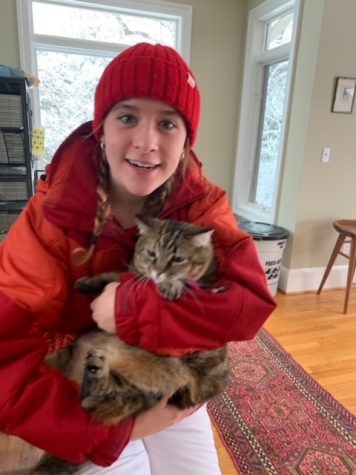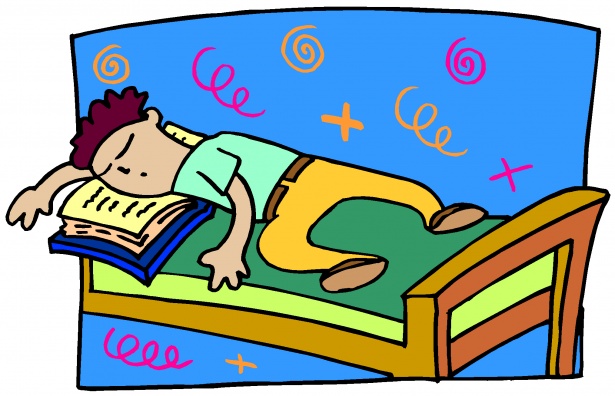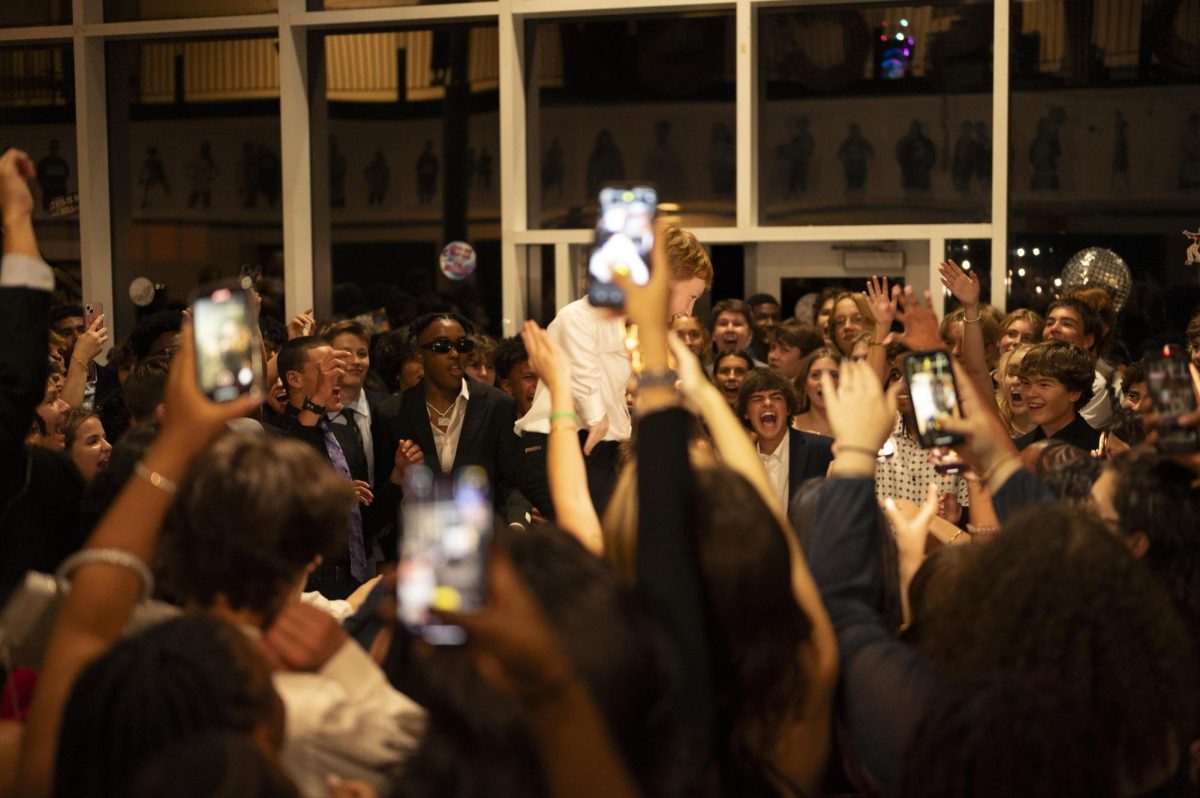Dobbs v Jackson: What This Case Means for Women’s Rights in Virginia
March 10, 2023
On June 24th of 2022, the Supreme Court case: Dobbs V. Jackson overturned Roe V. Wade, a previous ruling made in 1973, that protected abortion under the 14th amendment, right to privacy Clause. The important clarification that many may not fully understand, is that this ruling did not make abortion illegal. Under Dobbs V. Jackson, abortion is now a state-regulated process, so it lacks federal protection and this makes access in many states subject to changes.
In Virginia, abortion is protected for the first two trimesters under article nine of the Code of Virginia. Abortion in the third trimester is only legal in extreme situations where birth could cause death or serious complications for the mother. This means abortion is legal in Virginia until 26 weeks and 6 days of pregnancy.
Now, how these laws pertain to minors is more complicated. If any person under 18 wishes to terminate a pregnancy, they need the permission of their legal guardian. The most important step for any young person dealing with unplanned pregnancy is telling a trusted adult. It may not be a parent, it could be a co-worker, counselor, or even an older sibling, but many options will not be available to a minor on their own.
This can be problematic, as some minors may not be able to secure this permission for various reasons. However, a minor does have the option of pursuing judicial bypass, in which a judge can rule to waive the need for permission from a legal guardian. The process of securing judicial bypass can be very confusing for a minor to navigate, but there are resources available. For instance, the judicial bypass helpline: 844-868-2812 . Through calling this number, one would be connected to a professional, ready to explain the steps of applying for judicial bypass.
Since this reduction of women’s autonomy, there has been a cacophony of public outcry, and with this, the alternative method of medical abortion has become accessible through new means. There are currently two approved methods of terminating a pregnancy: medically and surgically.
The medical procedure includes taking two pills over the course of 48 hours. The first pill is called mifepristone, which stops the body’s production of progesterone, an important hormone needed for the growth of a fetus. The second pill, misoprostol, can be taken 48 hours after the first. Misoprostol will induce contractions which will cause bleeding and cramping, emptying the uterus, similar to a heavy period or early miscarriage. This procedure can be done up to 11 weeks after the last day of a woman’s most recent menstruation. The abortion pill has been FDA approved for over twenty years, and is considered safer than taking Tylenol. The pill is also 98% effective at terminating pregnancy.
Until recently, these medications could only be secured through specially certified doctors or clinics, but under the FDA’s new guidelines: “any pharmacy that agrees to accept those prescriptions and abide by certain other criteria can dispense the pills in its stores and by mail order.” According to The New York Times, many pharmacies like CVS and Walgreens have already made steps towards offering these pills.
In conjunction with the loosening regulations on medical abortion, a plethora of mail order pharmacies have emerged, making telemedicine an easy way to secure family planning resources. Students seeking online resources should be cautious of unreliable sources, and make sure they can find evidence of licensed physicians, when using an online service. Plan C is a reliable organization, dedicated to connecting people with access to telemed abortion services. Plan C has also led efforts to supply women with these pills in advance, ensuring women have the autonomy to choose, no matter where or who they are.
There is an abundance of stigma around sexual education in adolescence, and this often leads to a lack of resources for many young people. The responsibility and possible consequences of sexual intimacy are not clearly understood by many, and this needs to change. Dobbs V. Jackson only increased the importance of advocacy for women’s health. Abortion in Virginia remains available for now, but without legal protections, laws on abortion in Virginia can be easily changed by state and district lawmakers.
Planned Parenthood is a national organization with branches in almost every state, and one of the many groups working to destigmatize sexual health and education. Planned Parenthood is also a non-profit, meaning it relies heavily on the work of volunteers and donors.
“They have a community educator and so she’s really great at taking youth at finding little jobs for them to do, or ways to get involved in advocacy,” said Lily Bolling, a Junior at C.H.S., and a volunteer at Planned Parenthood
“I’m a peer sex-educator, so we learn about different issues like STI’s and protection, that are important for our peers to know and then we make presentations and share them with other people.” Bolling said.
Lily learned about this volunteer opportunity through a subprogram called Teen Connections.
“It’s a class you can take […] where you learn about all different sex-ed related issues. And when you finish the classes you can join the leadership committee, and that’s what I am on; right now it’s only 3 of us so we’re really looking for more members, and that’s how you can join. But there’s lots of other ways of getting involved with Planned Parenthood, and the best way is to reach out to them.” She said.
In Charlottesville, there is a Planned Parenthood right off of Hydraulic Rd. Abortion is only a small fraction of the services offered at Planned Parenthood. Other services include STD testing, contraceptives, birth control, sex education, cancer screening, and information about sexuality and relationships. In addition, Planned Parenthood vows to offer services to those in need, meaning if one does not have insurance, they offer services for little to no cost.
Sex-education is an important part of a student’s curriculum, but oftentimes it is overlooked, condensed, or even withheld, due to the stigma around sex and transparency. Many are taught from a young age that sex is a dirty word, yet it is an inevitable occurrence in the experience of many high school students. Silencing the conversation does not prevent the natural curiosity children will have about their own and other’s bodies. Equipping students with a comprehensive view of sexual safety is incredibly necessary, and examining the short-comings of our own programs is a great place to start. Lily answered the question, does our school offer enough resources?
“No, I do not think they do. The curriculum does not include enough about inclusivity- like different kinds of relationships, and it also doesn’t talk at all about healthy and toxic relationships and the difference,” she said.
There is always room for improvement, yet programs like Planned Parenthood (and many more) are working to form education that can meet the diverse needs and questions of young people everywhere.






